Video, Photo & Sound: Sila Yalazan
***
Video, Photo & Sound: Sila Yalazan
***
Photo: Sila Yalazan
Video, Animation & Sound: Steen Andersen
***
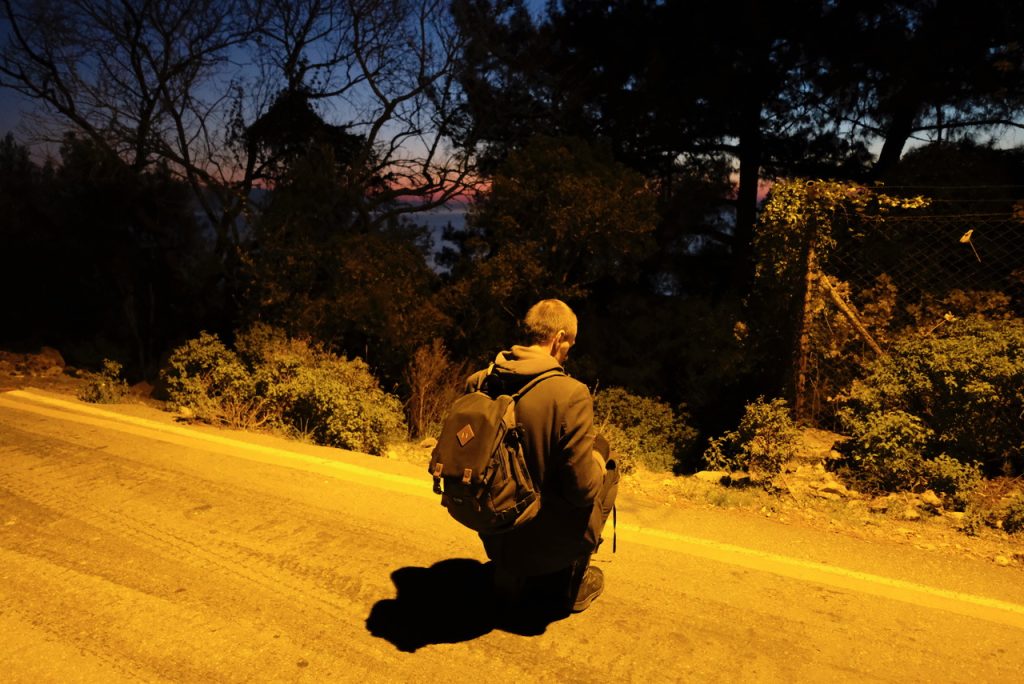
Soon we have to leave this place
We are still far from home
So take my hand and enjoy the night
Once we were believing
All night we had been feeling alone
Soon we have to leave this place
We are still far from home
So kiss my mouth and enjoy the night
Once we were believing
All night we had been outside time
Soon we have to leave this place
We are still far from home
So hold me tight and enjoy the night
Once we were believing
All night we had been waiting for a sign
Soon we have to leave this place
We are still far from home
So whisper in my ear and enjoy the night
Once we were believing
All night we had been dreaming
Soon we have to leave this place
We are still far from home
So walk with me and enjoy the night
Once we were believing
There was no way out
Photo: Sila Yalazan
Text: Steen Andersen
***
Photos: Sila Yalazan
Video & Sound: Steen Andersen
***
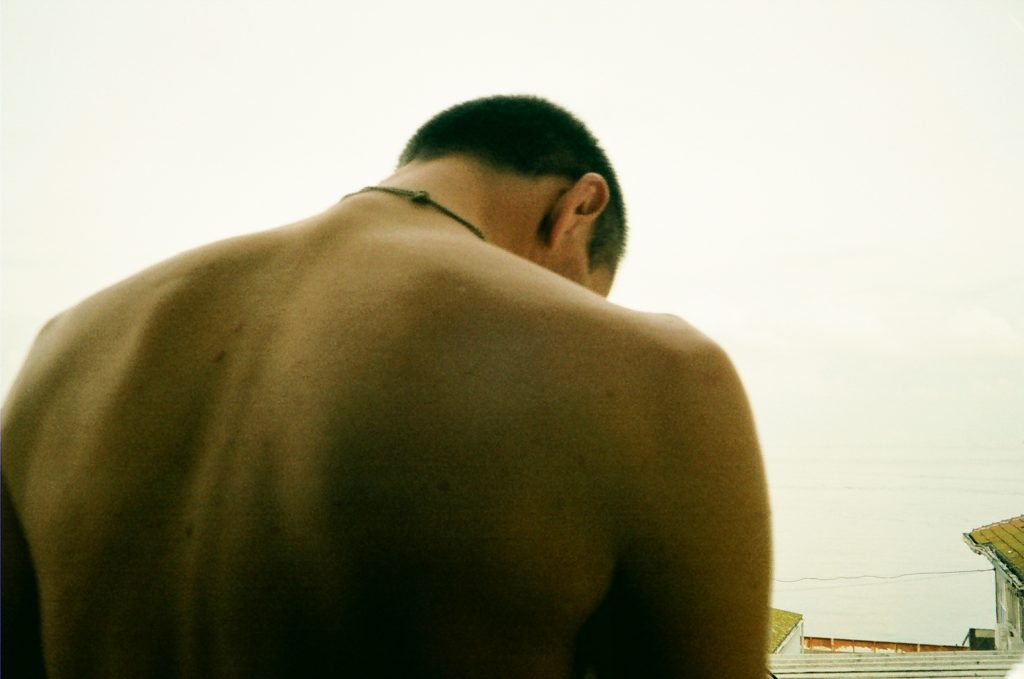
Photo: Sila Yalazan
Idea: Steen Andersen
***
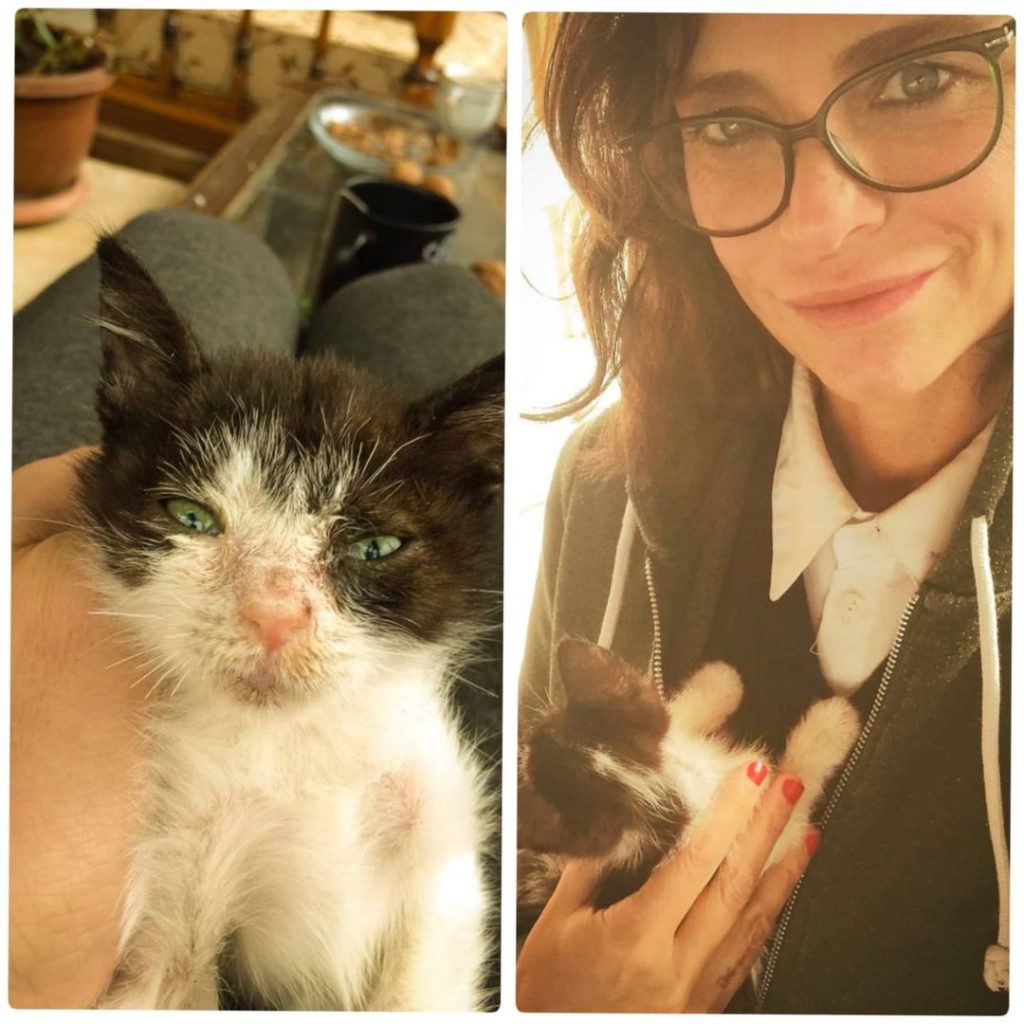
On our stay at Buyukada, one of the Princes Islands near Istanbul, we experienced on close hand how the lack of nutrients and the Covid-pandemic had become a serious challenge for stray cats.
Already the first day we got a new friend. A little stray kitten around three months old lived with its mother out on our terrace. When we were sitting on the terrace the kitten would either crawl up into our lap or continued upwards until it lay on top of our heads, half asleep, half curious about what was happening down below its hairy resting place.
But the weather was getting colder and so the kitten began to sneeze. And one morning we experienced how the kitten was bumping into the things on the terrace and when it tried to crawl up on our heads it fell. After a closer inspection, we found out that its eyes were glued together with a yellow kind of bacterial crumbles – it had gotten eye inflammation. So we began cleaning our eyes with chamomile tea – something we remembered our mothers had done when we had eye inflammation as children. And for some days everything seemed to be going in the right direction. Until we found the kitten shaking on the terrace, and we decided to take it to the local veterinarian. However, it was already in too bad a shape – not so much because of the infection, but due to its lack of nutrients. Later the next day the kitten passed away. We buried it around midnight in the backyard between tomato and pumpkin plants, laying it to rest in a grave filled with purple and white flowers. It was a sad day. However, when we earlier that evening went out on the street to pick the flowers for the grave, we were met by a gang of maybe 18-20 stray cats – whom all were sitting across the street waiting while following us with worried eyes. It was a strange and uncanny experience. After the funeral, we peeped out of the front gate and could see that the gang of stray cats was gone. The street was empty and more silent than any other night we had experienced. The local stray cats had come to say goodbye to the kitten and had then left it in peace.
Photos: Sila Yalazan
Text: Steen Andersen
***
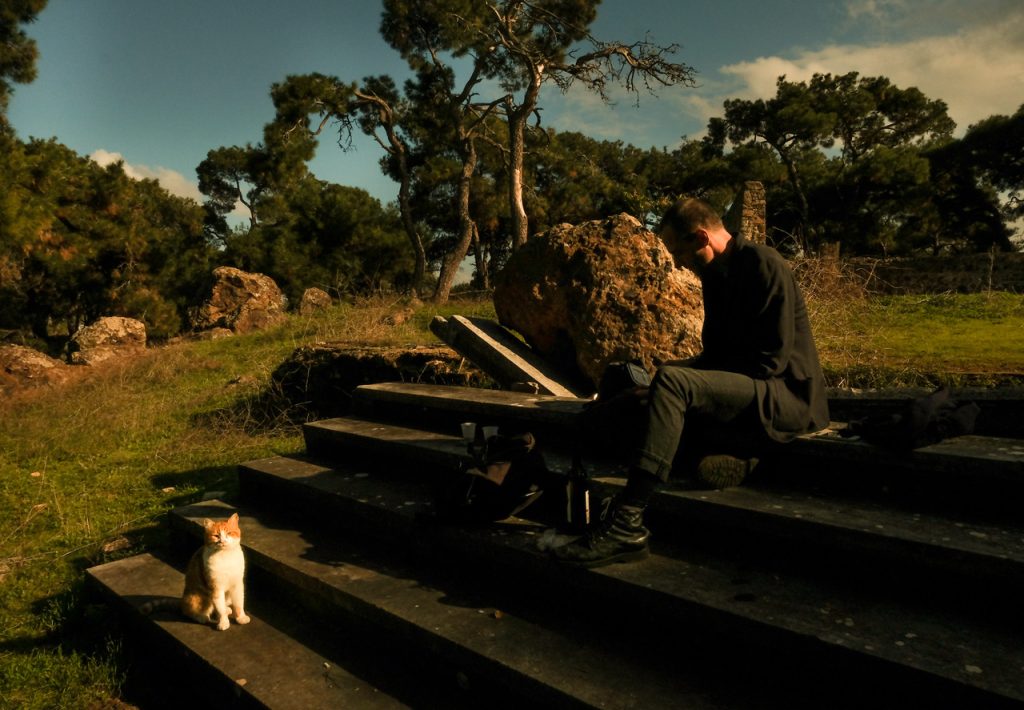
Around Buyukada, the largest of the Princes Islands near Istanbul, you can’t avoid running into stray cats – a lot of them. Back in the Ottoman times, people lived mostly in wooden houses. These houses were getting hordes of mice and rats so cats were a way to keep the pests out of the houses. That’s why people in Turkey have such an affiliation towards cats – Istanbul, for example, is home to more than 1 million stray cats.
Nowadays, people build little houses and shelters for stray cats, keeping them safe and warm. Likewise, people put out food for the cats. On Buyukada the cats are spoiled by the many fish restaurants and tourists that feed them or leave leftovers. So most of the cats on Buyukada are well-fed and happy cats, and their numbers are only growing steadily.
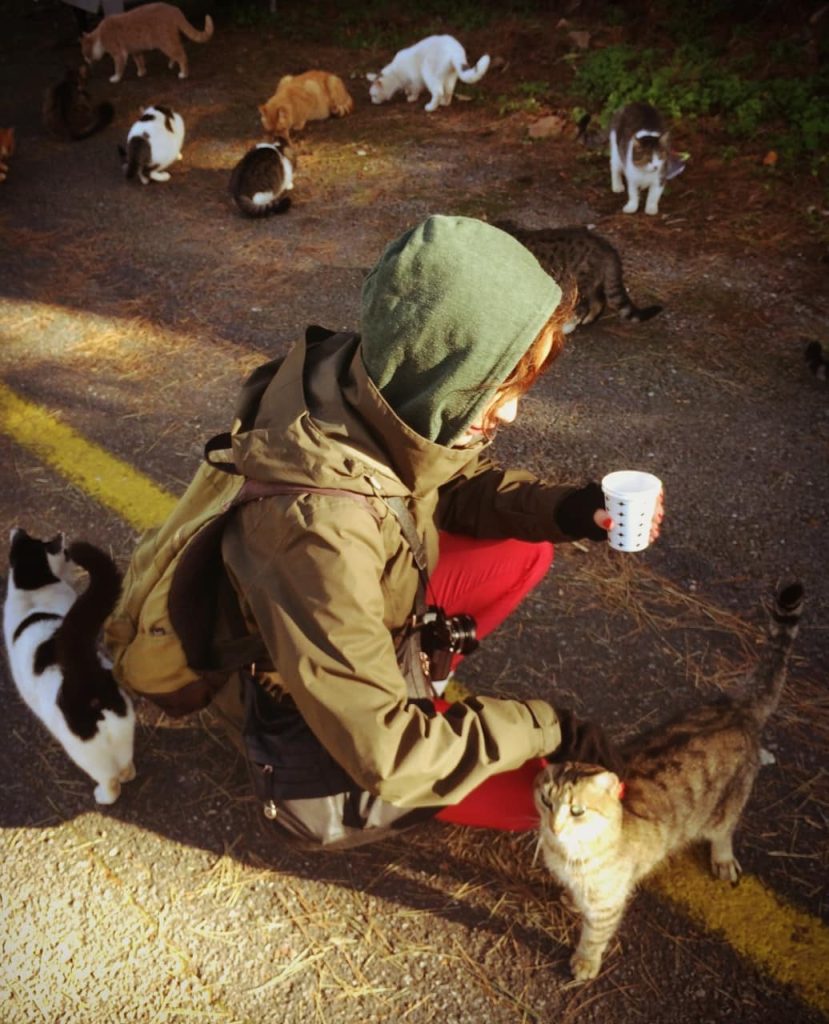
However, there is a large problem in Turkey with homeless animals primarily because there is not much of a culture of thinking about nutrients – the life of a stay cat is not long, about 3-6 years. And the Covid-pandemic has only made it worse for the cats because it limits the number of tourists while restrictions have forced restaurants and cafes to keep closed, leaving less food for the cats with the result that gangs of hungry stray cats have begun roaming the streets of Buyukada.
READ in “The Cat Story – Part 2” how we in these Covid-pandemic times experienced the struggle of the stray cats and with what tragic result :((
Photos: Sila Yalazan
Text: Steen Andersen
***
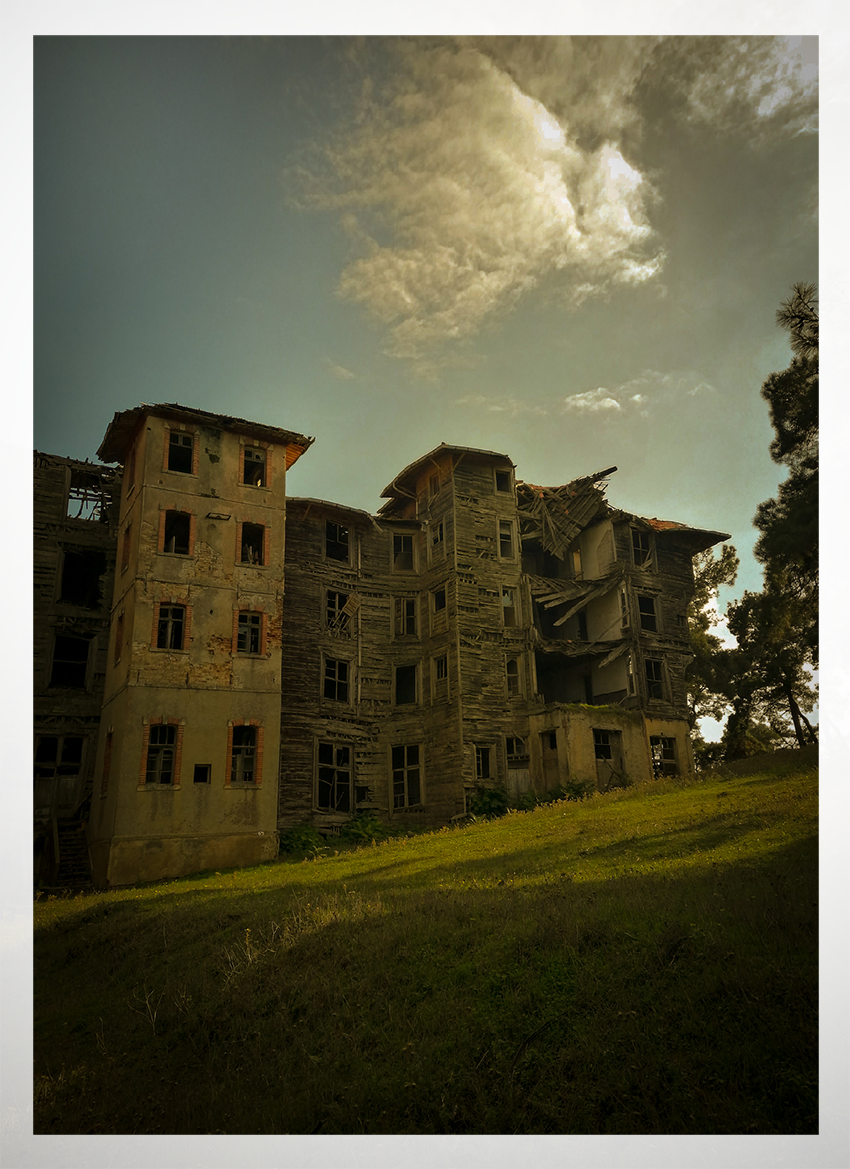
One afternoon on our month-long stay in Büyükada, the largest of Istanbul’s Princes Islands we went out to find the legendary Prinkipo Greek Orphanage which is counted as the world’s second-largest wooden building. Walking along large summerhouse mansions we at last entered the open forest where goats, cows, and wild cats were roaming around in the groves and the old ruins. After about half an hour we reached the Prinkipo Greek Orphanage. Situated on a hill surrounded by forest and a splendid view over the island and the Marmara Sea we were at once seduced by the place.
As a former home for more than 5.800 orphanages the historic 20,000-square-meter building was constructed in 1898 for the company that operated the Orient Express as a luxury hotel and casino, named Prinkipo Palace. But the casino never opened since Sultan Abdul Hamid II would not issue a permit for its operation. So it was sold to the wife of a Greek banker and donated to the Greek Orthodox Church. Thereafter it served as an orphanage from 1903-1964. Until the Turkish state authorities forcefully closed the orphanage due to the Cyprus issue between Turkey and Greece, and the persecution against the local Greek population. Since then the buildings have been empty and in decay. In 2005, the Greek Patriarchate took the Turkish authorities to the European Court of Human Rights in the hope to recover the building. And in 2012 the Turkish authorities returned the orphanage to the Greek community, who complained that: “The state did not return the building to us in the same shape it was in when they seized it.” It is estimated that 65 mills. euros would be necessary to put the orphanage back on its feet. The site has been included on the 2012 World Monuments Watch. According to the Greek Orthodox Patriarch, the plan is to turn the building into a global environmental center.
As we stood watching the building from outside its large iron fence, its condition, however, looked so bad that any prosperous future seemed impossible to imagine. Not a happy ending for a place with such an interesting history and still so much potential.
Photo / Video: Sila Yalazan
Text: Steen Andersen
***
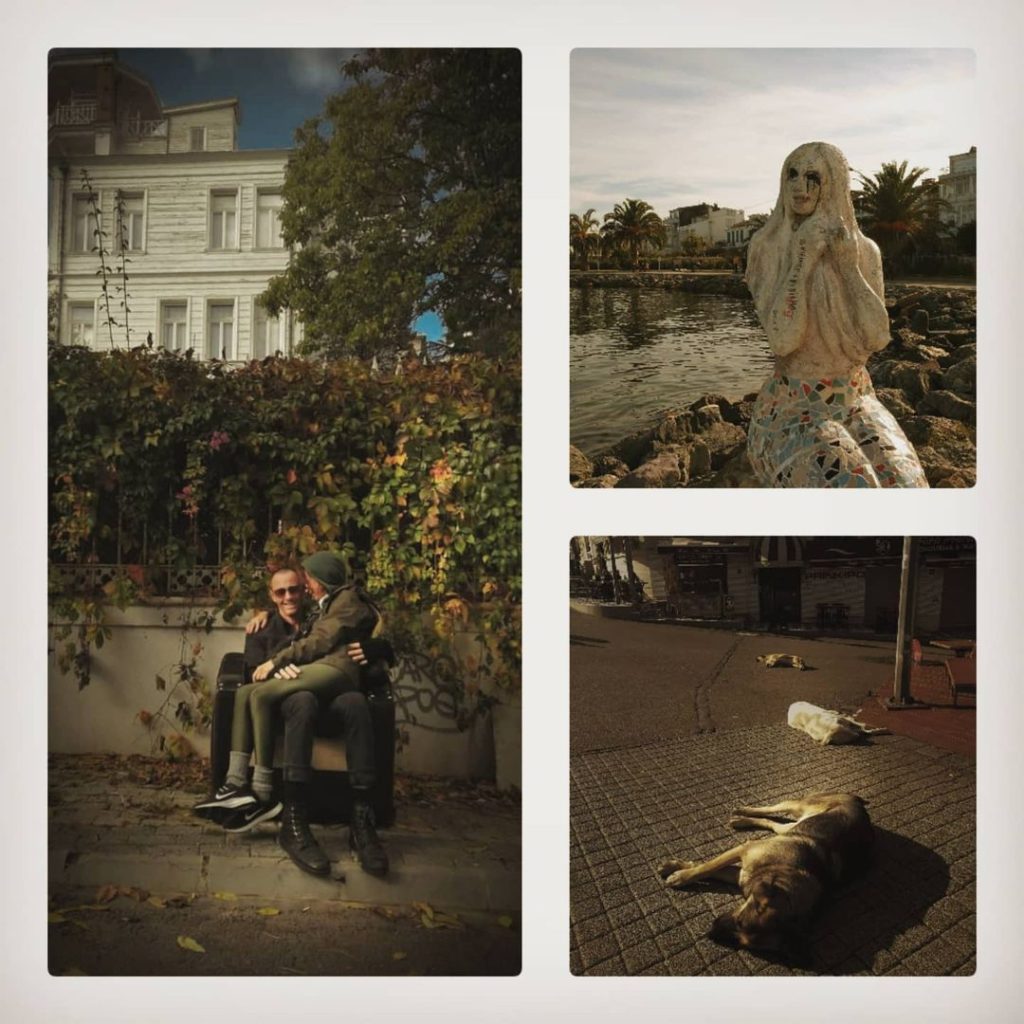
After spending the autumn of 2020 in Istanbul among more than 16 million other Covid-anxious people we decided to leave the busy and claustrophobic city life with all its Covid-phobia and limitations and go into hiding on one of the Princes Islands. We wanted to find peace of mind to write a novel and capture the atmosphere of the island.
The nine small islands are located about one and a half hours boat ride Southeast of the center of Istanbul in the Marmara Sea. The Princes Islands got their name because Byzantine emperors practiced sending troublesome princes there to be blinded, exiled, or executed. Today’s citizens of Istanbul call them simply ‘Adalar’ meaning: The Islands.
We rented an old house for a month near the harbor of Büyükada, the largest of the islands. It was an old idyllic house, build, we were told, by Armenians and one of the oldest on the island. When we arrived it turned out that we did not have the house to ourselves: the owner lived in the living room with his cat. He was a young and pleasant guy, a Kurdish poet and translator of literature from Arabic to Turkish. Despite the unexpected guest, we decided to stay, seeing it as an opportunity to live with one of the locals.
The next day we walked up the hill from the harbor filled with cafes, restaurants, and souvenir shops, all of them half empty due to the Covid-19 pandemic, and continued through endless rows of old sleepy Ottoman-Victorian summer mansions, built by wealthy Ottoman families, especially Greeks, Jews, and Armenians – until the forest took over and send us into a calm and relaxing atmosphere with a beautiful palette of autumn colors. Finally, we could take off our masks and breathe the fresh island air coming in from the Marmara Sea. It gave us renewed strength to explore Büyükada and capture its liberating atmosphere in these strange and anxious times.
Photo: Sila Yalazan
Text: Steen Andersen
***